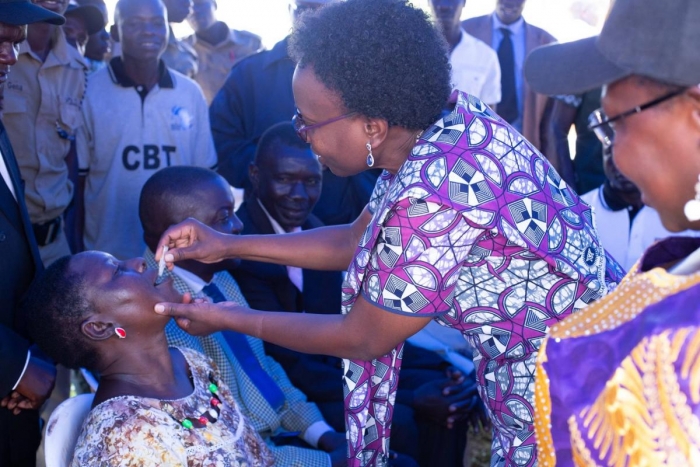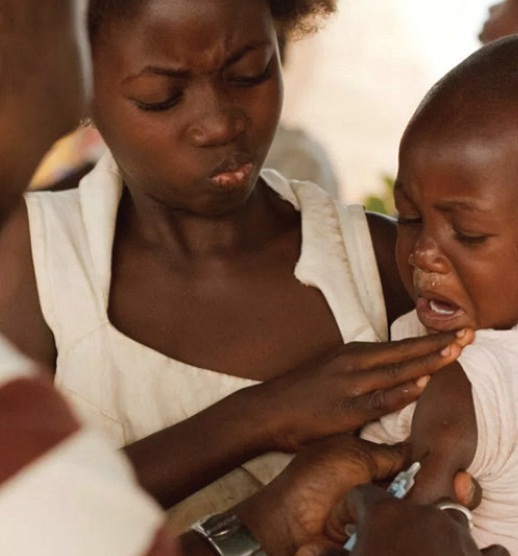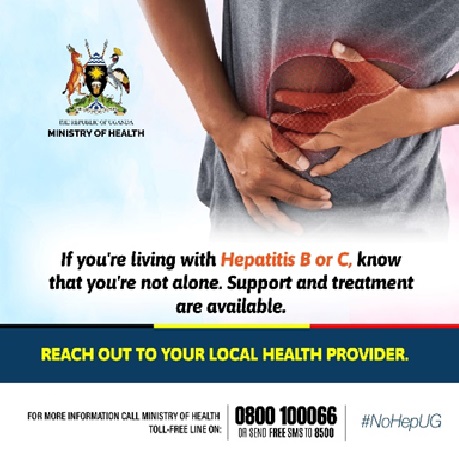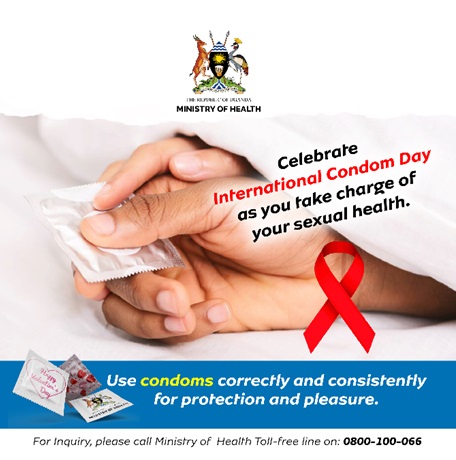You Are Here: Home / What We Do
WHAT WE DO
The health promotion service leads the implementation of health promotion approaches in order to tackle health inequalities and improve health across the populations of Uganda.
VHTs & CHEWs
The Community Health Workers (CHWs) program in Uganda, launched to strengthen community-level healthcare, includes two main cadres: Village Health Teams (VHTs) and Community Health Extension Workers (CHEWs). VHTs, who are volunteers, focus on basic health promotion, disease prevention, and community mobilization at the village level. However, their effectiveness is sometimes hindered by limited time and resources due to the voluntary nature of their work. CHEWs, in contrast, operate at the parish level, providing a broader range of services and are paid a monthly allowance, ensuring more sustainable and professional healthcare delivery.

The VHT strategy, initiated in 2001, aimed to enhance community involvement in health and strengthen healthcare delivery at both the household and community levels. While the strategy improved access to healthcare in rural areas, a national assessment in 2014/2015 revealed several challenges, including inadequate funding, poor supervision, a lack of medical supplies, and inconsistent training. To address these issues, the assessment recommended redesigning the VHT strategy for better functionality and sustainability, emphasizing the need for standardizing training, improving community involvement, and enhancing the referral system.
The CHEWs strategy was developed to address the limitations of the VHT program and promote universal health coverage. The goal is to train and deploy CHEWs to provide preventive, promotive, and basic curative services at the community level. The program focuses on strengthening governance, improving community engagement, and mobilizing financial resources for sustainability. A pilot phase was launched in 2022, with positive outcomes in improving healthcare access in targeted districts. The CHEWs receive extensive training in various health services, including maternal and child health, hygiene, and disease prevention.
Building on the pilot's success, the CHEWs program has expanded to more districts with support from partners like USAID, the Global Fund, and the World Bank. CHEWs are trained to bridge the gap between communities and formal health facilities, ensuring that even vulnerable populations can access essential health services. The program’s scale-up highlights its potential to transform Uganda's healthcare system, offering improved health outcomes through ongoing training, collaboration, and financial support from international partners.
Health Provider Works
The Ministry of Health recognizes that effective communication between healthcare providers and patients is essential in combating malaria. To enhance this, the Ministry has launched an initiative focused on improving the communication skills of health providers. They have identified that better communication can lead to greater patient satisfaction, improved health outcomes, and the adoption of recommended health behaviors, which are critical in preventing and treating malaria.
To address the gap caused by high clinical demands that limit time for in-depth patient interactions, the Ministry has introduced mentorship programs for healthcare providers. These mentorships are designed to equip health workers with patient-centered communication techniques, including shared decision-making and compassionate care. The goal is to ensure that providers can effectively engage with patients, improving adherence to treatment and overall health outcomes.
Through these mentorships, the Ministry aims to keep health providers updated on the latest malaria prevention and treatment guidelines. By doing so, healthcare workers—such as doctors, nurses, clinicians, and lab personnel—are better equipped to educate patients on malaria prevention, proper treatment adherence, and the importance of follow-up care. This initiative strengthens the healthcare system's ability to deliver key messages that can reduce malaria morbidity and mortality.

In summary, the Ministry of Health is taking a proactive role in enhancing the communication skills of healthcare providers. This effort supports a more holistic approach to malaria management by focusing on the vital role of health providers in educating and guiding patients, ultimately leading to better health outcomes and a reduction in the burden of malaria.
Risk Communication and Community Engagement
The mandate of the Globfal Health Security Thematic Area emphasizes the critical role of risk communication in enhancing preparedness and response to health threats. Effective risk communication fosters trust, informs decision-making, and empowers communities during health emergencies.
Key Components of Risk Communication and Community Engagement include:
Building Public Awareness
- Educate communities about health risks and preventive measures.
- Ensure clear and accessible messaging to promote understanding and compliance.
Two-Way Communication
- Facilitate dialogue between health authorities and the public to address concerns and misinformation.
- Encourage community feedback to improve health interventions and response strategies.
Crisis Communication Planning
- Develop comprehensive communication plans as part of emergency preparedness.
- Train officials on effective messaging during outbreaks and crises to minimize panic and misinformation.
Collaboration and Partnerships
- Collaborate with local and international organizations to ensure cohesive messaging across platforms.
- Engage community leaders and influencers to amplify communication efforts.

Monitoring and Evaluation
- Assess the effectiveness of communication strategies through feedback and data analysis.
- Adapt messages based on community needs and the evolving nature of health threats.
Integration with Other Sectors
- Promote risk communication as part of a multi-sectoral approach to health security, involving sectors such as education, media, and emergency services.
Crisis Adaptability
- Ensure that communication strategies are flexible and can adapt to changing situations during an outbreak or emergency.
Conclusion
Incorporating robust risk communication within the GHSTA mandate enhances the effectiveness of global health security efforts. By prioritizing clear, transparent, and responsive communication, health authorities can better prepare for and manage health threats, ultimately protecting public health.
Immunisation Services

Routine immunization services are a cornerstone of Uganda's public health strategy, coordinated by the Ministry of Health to protect the population, particularly children, against preventable diseases such as measles, polio, tuberculosis, diphtheria, tetanus, and hepatitis B. The Ministry's Expanded Programme on Immunization (EPI) plays a critical role in reducing infant and child mortality, improving public health outcomes, and contributing to global immunization goals.
The Department of Health Promotion, Education and Strategic Communication, through various communication platforms engages communities by raising awareness about the importance of vaccinations, educating the public on the immunization schedule, and encouraging caregivers to bring their children for vaccinations. These efforts are carried out through mass media campaigns, community outreaches, social media platforms, and collaborations with local leaders, ensuring that even remote populations are informed and motivated to access immunization services.
The Ministry also addresses vaccine hesitancy by using culturally sensitive communication and involving trusted community figures, such as health workers and religious leaders, to spread accurate information about the safety and benefits of vaccines. Health promotion efforts are aligned with broader public health campaigns, like the fight against infectious diseases, which has been especially important in responding to epidemics such as COVID-19 and Ebola.
In conclusion, routine immunization services in Uganda, supported by extensive health promotion and education efforts, are vital to the Ministry of Health's efforts to safeguard public health, reduce the burden of preventable diseases, and improve child survival rates across the country.
NCDs Communication
Non-Communicable Diseases (NCDs) are health conditions that cannot spread from one person to another. Their risk factors include an unhealthy lifestyle (tobacco use, alcohol use, physical inactivity, unhealthy diet, environmental pollution), as well as genetic, physiological, and environmental factors.

However, some NCDs result from exposure to infectious organisms. Physiological risk factors include high cholesterol, overweight, obesity, and high blood pressure.
NCDs include:
- Diabetes
- High Blood Pressure
- Heart Diseases (Stroke, Heart attack, etc.)
- Cancers
- Chronic Lung Diseases:
- Asthma
- Chronic Obstructive Pulmonary Disease (COPD)
- Sickle Cell Disease
- Injuries and Accidents
- Mental Illness
- Kidney Diseases
- Eye Conditions
- Oral Health Conditions
- Others
Water, Sanitation, and Hygiene (WASH)
Water, Sanitation, and Hygiene (WASH) play a critical role in improving public health by preventing the spread of waterborne diseases and promoting overall well-being. WASH encompasses three key areas: access to safe drinking water, improved sanitation facilities, and the promotion of good hygiene practices.
These interventions are vital in preventing diseases such as Ebola, cholera, polio, diarrhoea, and typhoid, which are linked to poor water quality and sanitation. Effective WASH programs are fundamental to health promotion as they foster healthier living environments, reduce healthcare costs, and improve quality of life. They also contribute to achieving broader development goals, such as reducing child mortality, enhancing school attendance, and promoting gender equity.
In the context of health promotion, WASH initiatives empower communities to adopt sustainable, health-conscious behaviours through education, infrastructure development, and policy advocacy.
By integrating WASH into health promotion strategies, we aim to build resilient, healthier communities, particularly in underserved areas.
Digital Media
Digital media has become an essential tool for health promotion and education in Uganda, particularly under the Ministry of Health's initiatives. By integrating various digital platforms, the Ministry has been able to reach a wide range of people, improve access to health information, and promote preventive care. This approach has been instrumental in addressing the health needs of Uganda's diverse population, including both urban and rural communities, where access to physical healthcare may be limited but mobile phone penetration is high.

The Ministry of Health has utilized social media platforms such as Facebook, Twitter, Instagram, YouTube, TikTok, and WhatsApp to spread critical health messages. These platforms provide educational content on important topics like maternal and child health, disease prevention, and vaccination campaigns. Particularly in rural areas, these digital campaigns have played a significant role in providing health information where traditional healthcare services may not always be readily available.

Since the Ministry began using digital media in 2014, social media has grown organically, becoming a trusted source of information. Through these platforms, the Ministry shares infographics, videos, and live discussions with health experts, engaging directly with the public. This two-way communication allows for timely feedback, helps debunk misinformation, and empowers Ugandans to take control of their health by staying informed.
Additionally, partnerships with influencers, health advocates, and civil society organizations have helped the Ministry expand its outreach, especially to younger, tech-savvy audiences in urban areas. The Ministry also leverages mobile apps, call centers, and collaborations with international organizations to improve service delivery, particularly during health emergencies like the Ebola and COVID-19 outbreaks. These efforts contribute to achieving health-related Sustainable Development Goals and improving health outcomes across Uganda.